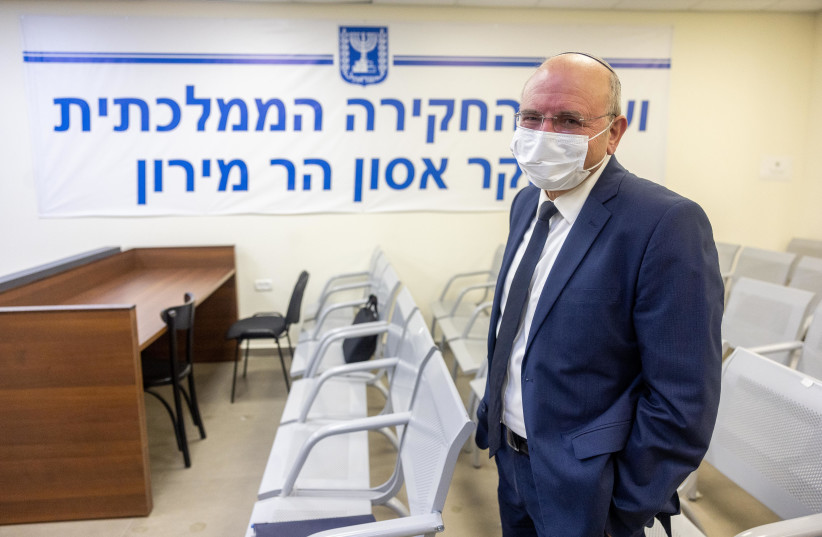The Mount Meron Disaster Commission on Tuesday issued its second interim recommendations for striking the right balance between safety and celebration at next spring’s Lag Ba’omer celebration.
While the commission’s first interim recommendations in November 2021 overwhelmingly emphasized new safety requirements, Tuesday’s recommendations, coming after the 2022 Lag Ba’omer holiday, swung the pendulum partially back toward facilitating an optimal celebration.
The commission was established in mid-2021 following the death of 45 men and boys on April 30, 2021, in a mass crush on Mount Meron, the site of the tomb of Talmudic sage Shimon Bar Yochai. It was Israel’s worst civilian disaster.
The committee was initially led by former chief justice Miriam Naor.
Though she died suddenly in January and was replaced by former Tel Aviv District Court president Dvora Berliner, Naor managed to run several months of hearings as well as issue the first interim report.

On August 30, Berliner and the commission issued warnings to former prime minister Benjamin Netanyahu, former public security minister Amir Ohana, Police Chief Kobi Shabtai and a variety of religious affairs, police, engineering and other safety officials, saying they might receive blame for the disaster.
The top officials were warned for failing to take charge of a clearly unsafe situation for several consecutive years despite warnings from the state comptroller.
The Religious Affairs Ministry was warned for allowing itself to be pushed around by hassidic sects instead of demanding safety protocols.
Engineers and police at the forefront
Engineers – who gave the paths, bridges and structures on the mountain a “clean bill of health” even though they were unsafe – have also been criticized.
Police, too, were blamed for allowing the celebration to go forward while ignoring clear signals of danger on the ground.
The November 2021 recommendation was to limit the number of worshipers present on the site at any one time. Though that number could vary based on various safety criteria, the commission seemed to view 20,000 as a reasonable number.
However, the commission said that this past Lag Ba’omer, police were too aggressive in enforcing those limits. It added that police officers completely blocked entry to the site for an extended period due to some minor and geographically limited problems involving disorderly conduct.
On Tuesday, the commission said that in such cases, the police should enforce the law and even arrest people causing disorder, but should not block others from access to the site.
According to the commission, the over-aggressiveness of police even led to a situation where there was a relatively small number of attendees in key spots on the mountain.
One way to strike the right balance between safety and celebration, said the commission, was to have the first line of defense and logistics management be done by haredim themselves.
In some cases, it said, there might have been no issue if those enforcing limits on numbers and movement had better understood the specific cultural context and manners of communication among the ultra-Orthodox.
They added that this could avoid any conflict.
One big fire is better than several small fires
At the same time, the commission held its line on safety regarding having only one major fire lit for the celebration as opposed to a large number of fires as in the past.
The commission doubled down on its recommendation last year that all unsafe and illegal structures must be removed – a process that has been ongoing but which is far from complete.
The commission also reiterated last year’s recommendation that the area available to pilgrims on the mountain needs to be expanded, and that visitors must be “channeled” to ensure that crowd congestion does not occur.
It said the government must formally and permanently set a specific minister to be in charge.
Prime Minister Yair Lapid issued a statement saying he would set up a committee to study and implement the commission’s recommendations.
